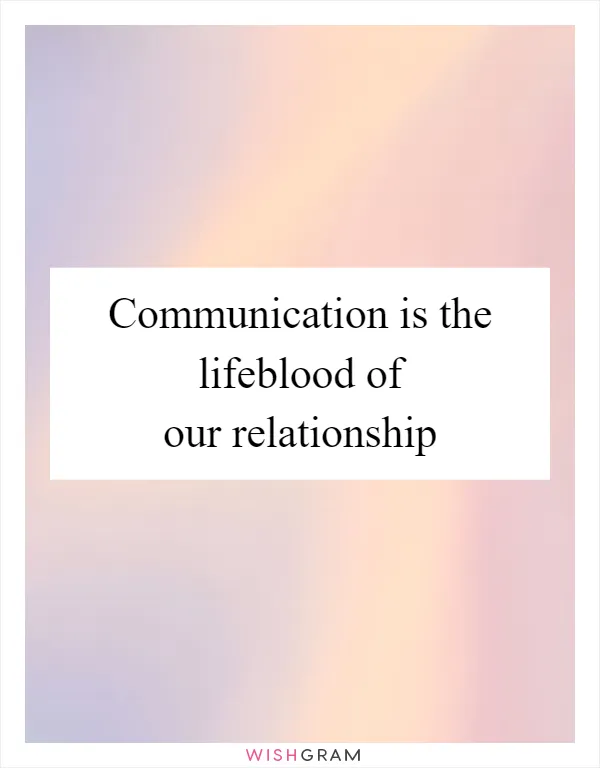Communication is the lifeblood of our relationship
Communication is essential for the survival and growth of our relationship. It is like the lifeblood that pumps through the veins, keeping everything connected and alive. Your relationship can thrive when there is open and honest communication between you and your partner. It allows you to understand each other's needs, desires, and concerns, creating a strong and lasting bond.
When you communicate effectively, it builds trust and intimacy, fostering a deeper connection. Expressing your thoughts, feelings, and emotions with your partner allows them to truly know you and vice versa. Through communication, you can both share your joys, sorrows, and hopes, creating a support system that strengthens your relationship.
Communication is a two-way street. It involves both speaking and listening. When you actively listen to your partner, you show them that their words matter, that you value their opinion, and that you are present in the conversation. This validation helps build a stronger foundation and makes your relationship more resilient against challenges.
By practicing good communication skills, you can avoid misunderstandings and prevent conflicts from escalating. When you communicate clearly and honestly, there is less room for assumptions and misinterpretations. This clarity opens the door for compromise, negotiation, and finding mutually satisfying solutions.
Furthermore, effective communication supports growth and personal development within a relationship. It allows you both to express your needs and wants, helping you establish boundaries, goals, and aspirations. By understanding each other's dreams and ambitions, you can support and encourage one another, nurturing a positive environment for personal and shared growth.
Communication also enables you to address and resolve conflicts constructively. When disagreements arise, open dialogue allows you to express your concerns without resorting to harmful behaviors such as anger, yelling, or manipulation. Instead, you can engage in healthy discussions, actively seeking resolutions that benefit both of you.
Remember, communication is not just about speaking; it involves non-verbal cues as well. Pay attention to your partner's body language, facial expressions, and tone of voice. These subtle signs can provide valuable insight into their emotions and help you respond empathetically.
